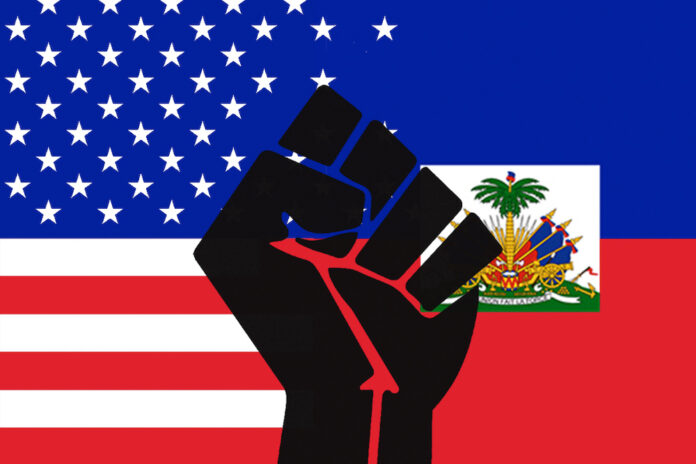Content warning: This article contains discussions of slavery and racial violence.
The image of Haiti, the world’s first Black republic, is relatively identical in most forms of media. It is a place that defines near-cosmic cycles of violence, natural disasters, poverty and constant political instability; Haiti has been shorthand for failure. Even the former dictator of the nation François Duvalier had once said, “Haitians have a destiny to suffer.” It is no wonder why many in the U.S. and Haiti’s ruling classes have called for military intervention.
Yet rarely are we given the full story when it comes to Haiti. The country also represents the resilience of the African diaspora and the bondage that remains today. In the post-George Floyd era, attention is correctly centered on the structural racism that exists in America. However, racism remains a powerful force outside of the U.S. and our task must be to respond to it everywhere.
African Americans and Black people across the world ought to think of Haitian history as their own and see Haiti as siblings in the same struggle for principles, such as “liberté, equalité et fraternité.” The Haitian Revolution directly inspired slave revolts and Black militancy in the U.S. and created the pathway to independence for African nations in the 20th century.
I too was personally ignorant about Haitian history until the protests in the summer of 2020. During this time, I came upon great works like C.L.R. James’s magnum opus, “The Black Jacobins“, and Julius S. Scotts’ “The Common Wind” that charted the importance and complexity of Haitian history. As a Black person, I would like to see my people not as helpless victims against white supremacy, but as fighters and, sometimes, victors against all odds. With the recent national fury about critical race theory in American schools, it is absolutely paramount that the truth, no matter how painful, must be clear for all to see.
Often the Haitian revolution is treated as a footnote in the history of the late 18th century, either completely eclipsed by the American and French revolutions or only mentioned in passing. This framing is not only entirely unreceived but also denies the role of force in the abolition of the slave trade and the empowerment of Afro-centric movements across the world.
Before the revolution, Haiti was the world’s most profitable colony producing most of France’s sugar and coffee all through the labor of thousands of Black and Indigenous people. With the outbreak of the revolution in France, the white and mixed-race planting classes in Haiti struggled against each other for power with both sides eventually promising the overwhelming majority of Black slaves certain rights. In 1793, Haiti was invaded by the British following a French declaration of war. The Haitians, under the leadership of Toussaint L’Ouverture, triumphed. After a Spanish invasion and a power struggle with André Rigaud, another important commander in the struggle against the British, L’Ouverture came out on top in 1793.
With a victory against a British invasion and the defeat of Rigaud, L’Ouverture was able to maintain a multi-ethnic society under French dominion status with free labor, forms of suffrage, and dignity for all people. When Napoleon attempted an invasion to restore slavery, L’Ouverture was imprisoned yet the revolution continued with massacres being committed on both sides — mostly against Black people. In 1805, Jacques Dessalines, a general and Haiti’s first official ruler, would declare Haiti to be a sovereign nation.
The Haitian Revolution can’t be understood as an isolated event with localized consequences. The Revolution gave a forceful blow to both the slave trade and slave power in the Caribbean, making slavery wholly unprofitable for the British and liberating most of the slaves in the French Caribbean. Haiti was the first nation in the Americas to completely abolish slavery and would later assume the unique policy of granting citizenship to any Black or Indigenous person born there. The vision of the Haitian Revolution haunted the minds of slave-masters and gave millions of Black people across the world the hope that their bondage was only temporary.
For this powerful example, France imposed a debt equivalent to $21 billion on Haiti. The United States was quick to follow, with Thomas Jefferson’s order to cut off aid and cooperate with France in blockading Haiti.
The immediate sting of the French debt on top of the U.S. embargo has been a poison to any vision of a prosperous, stable Haiti with tempests of political instability only broken by the respites of dictatorship. In the early 20th century, U.S. Marines would occupy the nation during a period of political crisis forcing Haitian lawmakers to adopt an American-friendly constitution, imposing racial segregation, creating a system of forced labor and committing numerous massacres. This arrangement lasted until 1934.
The current situation in Haiti — an assassinated President, another massive earthquake, the increasing threat of gang violence and low development — can’t be blamed on the Haitian people. It is the legacy of a history of sabotage, imperialism and racism.
Haitian history is not generally well-known outside its borders, yet the Black experience is without borders. Our history exists outside of America and is still in the process of being decided.
Yet the only real possibility for change must come from pressure against the U.S.’s thinly-veiled racist and imperial relationship with Haiti. Recent intervention on the island and ongoing deportations of Haitians proves this imperial relationship has continued. Whether Black or not, we must act to stop any further damage to nations like Haiti. Whether that action is through protest, education or the ballot box, we must push for the end of racism — whether explicit or implicit — across borders.
![]()































